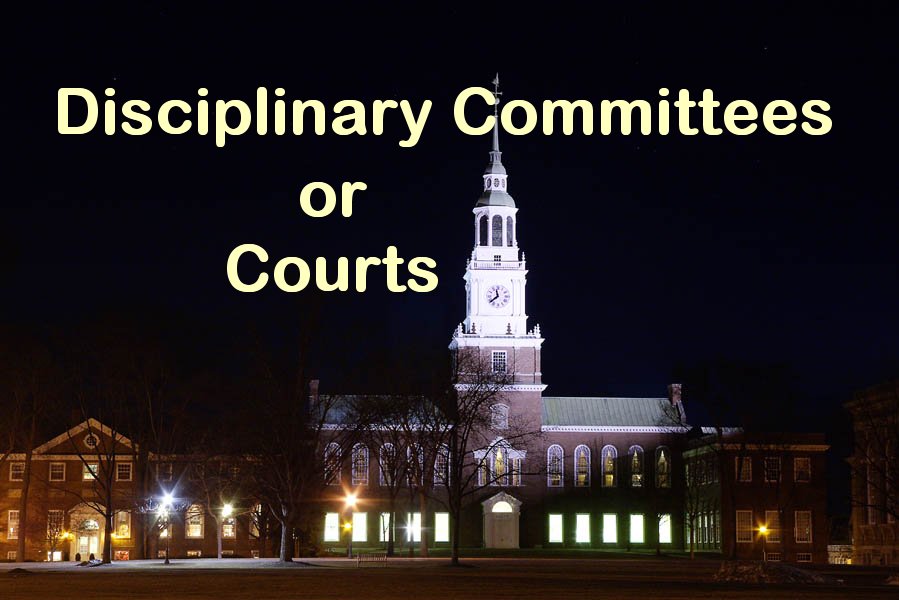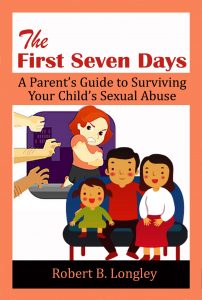
Sexual Assault
Earlier this week Secretary of Education Betsy Devos announced that she would be rolling back some Obama era campus sexual assault policies. Some are seeing this as a Trump administration assault on women’s rights. Others see is as a more balanced approach to the problem of college sexual assault. The jury is still out. The current approach is more focused on the needs of victims, but it is clearly an imperfect system for all concerned.
This is just the latest in a series of changes in policies and approaches that I have been unlucky enough to have a front row seat on for the past 30 years. I was a senior at Lehigh University when Jeanne Clery was murdered in her dorm. After winning a lawsuit against the university, her family led the charge for uniform crime reporting on college campuses. The Clery Act has been the core of sexual assault reporting on college campuses, but it doesn’t solve all the problems. Having had sexual assault impact my own family over the years, I’ve taken an interest in ways to improve the experience for victims and their families through writing and creating case management software for sexual assault – http://www.advocacypro.com .
Sexual Assault Challenges to Colleges
College is an absurd place where the rules of society don’t always apply. Most of it is written off as just part of the college experience, but not always. The estimate that 1 in 4 women will experience some form of sexual abuse during the college experience has been a wake up call for many colleges and universities. Only about 15% will actually come forward about their experience.
Some sexual assaults are clear instances of rape. Others are less cut and dry. Signed consent forms are a solution for some schools to cut down on “he said, she said” instances. Do we really have to go that far though? Maybe. Many schools have a policy that assumes being drunk means unable to consent. It’s probably a good assumption, but does that cover both people being drunk? These are some of the details that cloud many sexual assault cases on campuses.
Legal or Disciplinary
Schools tend to take either a legal or disciplinary approach to sexual assaults. Some let the police handle cases; others bring the issue before a disciplinary committee. There are advantages and disadvantages to both. The issue that the Devos decision is likely to impact is how the accused are handled. Labeling someone as a rapist is a bell that is hard to un-ring. Even if the accused is not found guilty, the stain of being accused doesn’t go away. Also, police and disciplinary committees don’t always get it right. This can leave all parties with a negative experience.
Schools can also be at risk based on how they handle situations. Failure to record assaults or provide services to victims can at a minimum result in Clery Act and Title IX violations. Many cases go further and result in multi-million dollar civil settlements. Most lawsuits and victimizations could have been avoided with better education, record keeping and service availability.
Common Sense Choices
Regardless of what political forces may be at play, doing nothing and waiting is never a good idea. There are some common sense steps that all schools should take to both reduce sexual assaults and ensure better outcomes when it does happen.
- Provide mandatory sexual abuse education to all students and staff every year. You can’t fix a problem if you don’t talk about.
- Provide apps for campus safety notification like http://www.campusorb.com
- Provide a support line, direct message or chat channel for students to report or discuss sexual assaults before making a formal report.
- Use a victim focused case management system such as http://www.campussafetypro.com to ensure a continuum of care between campus police and counseling resources. Clery Act reporting alone doesn’t always support the needs of victims.
- Be transparent about crime statistics on campus and make a commitment to providing a safe environment for victims to report.
- Provide individual and group counseling services regardless of need to provide proof of assault.
These are just some of the easier fixes that any college can take while policies are being hashed out. I encourage schools to add to this list and share what works for them. The problem of campus sexual assault is not going to be fixed by policies from Washington. We have to all work on it together.
Let us know if we can help you dealing with your family’s sexual abuse situation. For ideas to get started please check out our book on what to do during the early days after disclosure.

Sexual Assault
Stalking is a close cousin to sexual assault. Sure there is no physical interaction, but most of the mental damage is the same. Erin Anderson is a news reporter who recently won a $55M verdict against her stalker and Marriott corporation. While I’m happy she had a successful day in court, it sets a ridiculous president, and at the end of the day, she really doesn’t get that much.
55 Million Dollars
This is a crazy number for this type of settlement. Maybe it’s the high profile nature of the case, or maybe it’s because one of the plaintiffs has very deep pockets, but this is not a number anyone in the real world will ever see. Real world settlements for things even worse than this generally are missing two to three zeros from anything close to this. If you think a civil case will make you whole again, you are probably going to be disappointed. Even if you do get a large settlement, it will quickly evaporate through the realities of the situation.
Show me the money?
Unless you are suing a multinational corporation or a multimillionaire, you might not get anywhere close to the award amount. It doesn’t due you much good to sue a broke person who’s in prison. And if you are suing someone who could potentially pay you but would lose most of their assets in the process, they will probably file for bankruptcy. Then it’s game over.
Appeals
If the person/company is not likely to go belly up, they are probably going to appeal the award. In the case of the Erin Anderson award, it will likely be cut by 1/3 or more. So when you write off the $28 Million for the actual offender, take a third off the remaining $27 Million and if she is lucky it might end up at $20M.
Lawyers
Everyone has to be paid from your settlement. If you received victim support through the Victim of Crime’s Act (VOCA), that money needs to be repaid. Then your typical contingency lawyer is going to take between 30-40% of the award. So now you are down to about $10-12M. But wait there is more.
Taxes
Since this lawsuit only dealt with emotional distress and not physical harm, the award is taxable. This is how a $55M award becomes a $5.5M award.
Final Tally
When all is said and done, you have several absurdities. The perpetrator ended up paying nothing. The victim received comparatively little of the actual award. The lawyers ended up making the bulk of the money received. The entity who ends up paying was the owner of the location where things took place. Not exactly an example of enforcing accountability, or preventing this from happening to someone else. Clearly there was some mistakes made by Marriott, but they were manipulated by someone who misrepresented their reasons for being there. It’s difficult to protect against people doing things other than we expect them to do.
At the end of the day I hope Erin Anderson gets some peace of mind from the settlement, whatever the final tally. For Marriott, a few million dollars is probably not going to make a difference. Still it would be nice if the person responsible were the one made to pay, and not the party with the deepest pockets.
Let us know if we can help you dealing with your family’s sexual abuse situation. For ideas to get started please check out our book on what to do during the early days after disclosure.

Sexual Assault
Making a Murderer is a documentary about Steven Avery that took 10 years to make. Steven spent 18 years in prison for a sexual assault that he was later found not to have committed. Shortly after being released he was rearrested for murder and is currently serving life in prison. Steven was never a model citizen, but it’s pretty obvious from the documentary that Steven not only did not receive fair treatment by the courts, but he may have been set up by the local police.
While the documentary is clearly slanted in favor of Steven Avery, it is an eye opening look into what can go wrong with the legal system.
It’s about a conviction
Most people think that interrogations are about getting to the truth. The reality is that most interrogation techniques are about getting to a confession. In a perfect world they would one and the same. Several factors can make them diverge. Police are under pressure to close cases and once you have a confession, why would you look further? Unfortunately a skilled interrogator and less than skilled suspect can often lead to a confession regardless of guilt. Jurors think confessions are an admission of guilt. In many cases it is an example of someone telling their interrogator what they want to hear because they think they are helping themselves.
The opposite can be equally problematic. Police often question victims the same way. They ask leading questions that solicit specific responses. It can have an almost hypnotic effect on both victims and suspects. If you have ever seen a hypnotist walk up to someone and just start talking to them and within a few seconds the person is giving him their wallet and car keys, you have seen how easily people can be manipulated. In the case of police it’s generally not intentional, but the combination of distraction and language can result in behaviors that wouldn’t happen otherwise.
It’s the law
When something bad happens we think that the victims will get justice and the bad guys will be punished. The Steven Avery case shows a legal case that doesn’t make a lot of sense to the viewing audience. What seems blatantly obvious to the casual observer seems to be completely ignored by the legal system. What might follow proper procedures legally doesn’t always make sense. Lawyers pick and choose what evidence they want to use in court. Juries get confused by instructions. Evidence can be mishandled and sometimes tampered with. And sometimes the legal system does what it is supposed to do, but it still doesn’t do what is right.
Lessons learned
Educate yourself about the legal process. There are no guarantees, but the more you know about what should happen the better your chances of getting justice.
If you are giving a statement, try to give it to a person who is properly trained. Victims often are able to request the venue where they give a statement. Police are often either not trained in proper victim interview technique, or they are trained to interrogate. This can lead to undesirable outcomes. Most child advocacy centers and domestic violence organizations have access to qualified interviewers. Interviews can be coordinated with police, video taped, and observed.
Let us know if we can help you dealing with your family’s sexual abuse situation. For ideas to get started please check out our book on what to do during the early days after disclosure.

Sexual Assault
There’s an interesting debate going on at campuses around the country. What to do with sexual assaults? Is it simply a matter of referring all sexual assaults to the police, or should they be managed internally by a college disciplinary committee? It’s an issue that gets pretty complicated the more you talk about. There are actually problems with both approaches.
(more…)

Sexual Assault
The University of Virginia is the latest college to be in the spotlight over rape on campus. Starting with the brutal rape of Hannah Graham, the media lens was already pointed at UVA. Then the Rolling Stones article about a gang rape came out that even Rolling Stones admitted contained factual errors. Now you have a situation where inaccuracies in an article bring into question the accuracy of the original report. It’s not fair. The University of Virginia is now a culturally divided campus with verbal and physical attacks against the accused and the accuser. So what’s the solution? That really depends on what the problem is.
Colleges are Artificial
Throughout most of human history education has been a community endeavor. It starts with parent to child, may evolve to a centralized community model, and often evolved into an individual mentor/apprenticeship arrangement. There was a continuum and logical path to follow through the community. Then a few hundred years ago the modern college emerged. It makes sense for a lot of reasons – specialization, consistency of information, ability to develop expertise, focus, etc. It also creates some problems in the process. You are creating a large same same age population which operates by it’s own set of rules that are different than the community that all of it’s members come from. Add in the dimensions of personal freedom, free flowing drugs and alcohol, sexual discovery, and normal social rules are going to be subverted.
Fraternities and sororities add their own dimensions to the problem. Whether it is a college, prison, or the military, same sex environments create abhorrent behavior. Just read Lord of the Flies and you will see the negative potential of homogeneous groups. Anyone who has been a member (excluding prison) will also argue the positive aspects – myself included. I have some great memories from college and the military, but I have more than a few stories of the negatives as well. Everything is magnified – the good and the bad. In normal communities, there are rules and checks and balances that level things out. College students sort of make up their own rules, and now the problems are starting to come to light.
30 Years of Problems
The problems have probably always been there but we only really get a glimpse if we are in it ourselves. As the parent of a college student I get to see that things haven’t changed that much in 30 years. Most stories of campus rape will reference the Clery Act which covers crime reporting requirements for colleges. This was the first comprehensive step to address the problem of crime on college campuses. While I’ve covered this in other posts, I went to school with Jeanne Clery and remember when she was murdered. Sadly I remember more about what happened after than about Jeanne herself. The case was atypical for a variety of reasons, but it set the stage for change. Insurance companies have done a lot to curb some of the problems of college environments by including denial of coverage clauses around serving minors and other activities. Unfortunately, the campus often adjusts and eventually works around the new rules.
Fixing the Problem of Rape on Campus
Most schools have some form of a zero tolerance program when it comes to sexual assault on campus. That doesn’t mean they have zero problems, or are going to any time soon. I would suggest if a school has no problems with rape on campus, it isn’t looking very hard. Even if we cut the current problem in half, it would be a huge improvement. So what are some things that will improve the situation?
Mandatory Education on Sexual Abuse – Sexual abuse exists largely because of a lack of education. I believe all students and staff should be required to attend at least an hour annually regarding campus sexual abuse. Everyone should be educated on what the risks are, and what to do if it happens. Students should also know what behaviors are considered offenses and what is considered consent.
Fix the Process
Improve the reporting – investigation – discipline process – Many schools treat sexual assaults as inconvenient black marks that hinder recruiting. There are more than a few cases where schools tried to make the problem go away, or they make it so difficult to follow through on a sexual assault report that many victims simply give up. As an example, the University of Virginia last year had 38 reports of sexual assault. 9 o f these reports were formally investigated and only 4 were followed all the way through. There may be a variety of valid reasons for this, but I’m guessing the process being difficult for victims is a contributing factor. Sexual abuse is already under-reported so making it difficult to report only makes the problem worse. Students should know in advance how the process works and be provided support through the process so they don’t get frustrated and drop it. Colleges should invest in victim case management software to improve the process for everyone. It makes for a better experience for victim, helps prevent Title IX violations, and provides insight into what is happening from report initiation to report closure.
Building a Foundation
Help victims transition their experience from burden to foundation – sexual abuse is like a virus because it can be years from contact until symptoms appear. Also people often suffer for years before getting help. It is a burden that many people suffer silently because of shame, they felt they waited too long to say anything, or other reasons. Schools should help victims reframe their experience. It may still be the worst thing that ever happened in your life, but it can be the foundation or a burden. Part of this is choice, and part of it is being shown the possibility. The worst experiences in the world create extraordinary character. Look at Victor Frankl, Nelson Mandela, Oprah, and others who have endured extreme hardship and abuse. The bad stuff in their life never went away, they just positioned themselves above it rather than under it. It’s not an easy transition, but anyone can learn to do it. Since we go to college to learn, this is probably one of the most important lessons anyone can learn.
Let us know if we can help you dealing with your family’s sexual abuse situation. For ideas to get started please check out our book on what to do during the early days after disclosure.
Sexual Assault
Bill Cosby and rape are two subjects that most people would not ever combine in the same sentence. Bill Cosby is a legend – the ultimate TV father figure. How can he be a rapist? So far no legal entity has even accused him of rape not to mention finding him guilty. Still more than a dozen women say otherwise, and social media has tried and convicted him. Once someone is labeled as a rapist, it is very hard to wash off that label even when it’s not true.
“She’s a Witch”
In colonial times the label of Witch was a mark from which there was often no escape. The science of discovering a witch was also very interesting. Hold them underwater long enough and if they survive, they are a witch and then you burn them or hang them. If they didn’t survive – well it’s still ok because you can’t be too sure about these things. So what prompted the charges in the first place? Theory has it that some of the behavior said to be caused by the witches was actually caused by moldy grain. Some of this can be ascribed to hysteria and mob mentality, but for some it was probably a tool. Feel your relationship is threatened by someone – just call her a witch and the mob will do the rest for you. Interested in a piece of property that the owner won’t sell – just call them a Witch and there will be a for sale sign in no time. Or perhaps you had sex with someone you weren’t supposed to and people found out. Clearly demonic possession gives you the out and public sympathy you were looking for. The witch label clearly doesn’t have the weight that it used to 300 years ago, but rapist has about the same effect.
The Power of the Label
Over the years I’ve worked with a few people who have been convicted of crimes. One gentleman was convicted of murder, got off on a technicality and got his old job back. He may as well have been on a vacation based on how he was treated when he returned. Another did a few years for securities fraud and was openly welcomed back into the fold. In contrast the guy who was drugging and raping women in the office, he’s almost due for release but I can guarantee he won’t be welcome anywhere near his former office. I think you would find this scenario played out just about anywhere. I never felt uncomfortable around either of the first two after their release. Contestant #3 I would never want to deal with again. I think most people would have the same reaction. The problem is that we tend to have the same reaction regardless of guilt.
The First to Come Forward
The first person to come forward in a sexual assault case has an enormous amount of power and responsibility. With children, it’s rare that someone makes up charges of sexual abuse (with the exception of parental abuse charges during custody disputes). With adults it isn’t always as clear. The problem is that in those rare cases where motives are less than honorable, it clouds all of the legitimate cases out there. As a culture we are still emerging from a mindset that often paints women as temptresses and men their victims. It’s been ingrained into us since our first bible teachings about Adam and Eve. Most people have heard about an instance and heard something to the effect of “well – what does she expect with the way she dresses”. As absurd as that is, a lot of people nod and chock it up to being her fault.
Coming forward takes a huge amount of courage largely because some variation of these social reactions is likely to confront the victim. If you get robbed, no one questions whether you should have been carrying so much money around and assumes it was partially your fault. In sexual assaults there is almost some degree of blame put on the victims for something. As a culture we are starting to wake up and realize that isn’t true, but it’s still an uphill battle for any victim. Being the first to come forward all eyes are going to be on you. If you follow through with police reports and investigations it adds to your credibility and may empower others to stand up as well. In the case of child sexual assault, when someone is arrested the first time, it’s estimated that some have had as many as 75 other victims that didn’t come forward. Adult sexual assault victims are typically not as high, but if you are a victim, you probably aren’t the first.
If your police report is quickly closed and followed by an undisclosed out of court settlement, it brings question of motives. On the other hand, a criminal trial followed by a civil suit generally brings support. Neither view is always correct. Having been through both the criminal and civil legal systems with this, the only winners are the lawyers. I can see why someone might take a settlement rather than spend years fighting to get justice. Much like civil rights 50 years ago, I think it’s important for victims to stand up so that the extent of the problem can be realized. But this is an individual choice for everyone who has been a victim. We can’t judge a victim just based on how they handle the reporting of their abuse. I will say in most cases, the first to come forward is generally followed by several others
What about Bill
So this brings us back to Bill Cosby. He’s a prominent public figure who is beloved by generations of people. He’s also admitted to past marital indiscretions and he has the money to make problems go away. Can 12 women be wrong? or are they seeking a quick buck? Some of the allegations go back 30 years but no one has seen them as worthy of court action. 30 years ago most sexual abuse went unreported and unprosecuted. So what do you do about it now?
A few years ago after a local pediatrician died, the people who bought his house were renovating and found a secret compartment in the wall that had thousands of pictures of children. People came forward in droves for the lawsuit against the local hospital. There had been some unsubstantiated allegations over the years, but most people thought the world of the doctor. People aren’t always what they appear.
It’s hard to know if Bill Cosby deserves our support or condemnation. We know he’s not perfect, but based on the roles he has played, we have put him on a pedestal of what the ideal dad should be. Invariably, people on pedestals become targets. It’s hard to know if that is what happened here. What Bill Cosby does deserve is to not be tried and convicted by the media in the name of ratings. Conversely women who claim to be victims should have a path to file complaints legally and have them followed through by competent police and/or lawyers. CNN is not the place to tell the world you were raped by a celebrity without having a solid legal trail leading up to it.
Let us know if we can help you dealing with your family’s sexual abuse situation. For ideas to get started please check out our book on what to do during the early days after disclosure.





